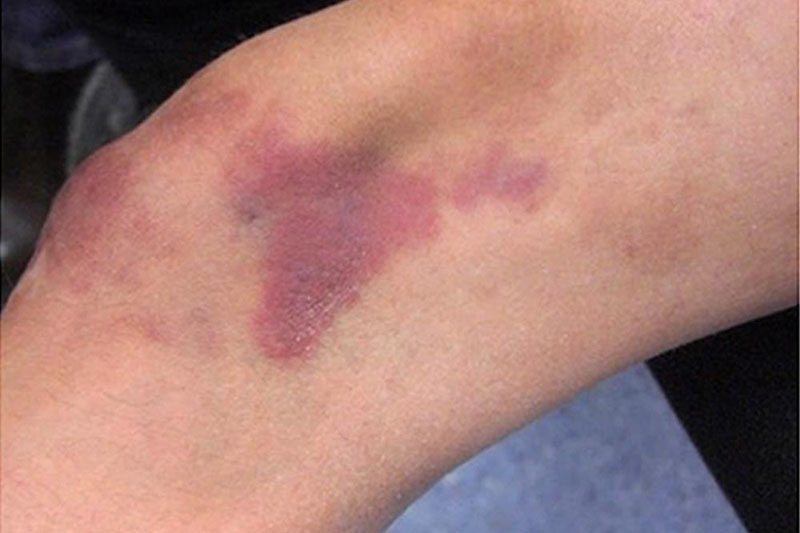Introduction
What is vascular malformation?
A Vascular Malformation is an abnormal collection of blood vessels. In everyday life they may be called “birthmarks” or “growths”, although there are many different types of vascular malformation.
They are most likely to have formed in the womb, although they may only become noticeable and symptomatic later in life during periods of increased hormonal activity such as puberty or pregnancy. At these times the slow blood flow through the vessels causes blook clots, which in turn can cause swelling.
Vascular Malformations may also be associated with trauma or exercise. They are not cancerous. However they have similar symptoms to more sinister conditions such as sarcoma and therefore should be investigated to rule out the latter.
Methods of investigation
Vascular Malformations can be identified using ultrasound or MRI scans. A specialist radiologist may be called upon to interpret the results of these scans if required.
Treatment and management
There are many different categories of vascular malformations, and so treatments and management techniques will vary accordingly.
To manage the pain associated with vascular malformations a simple pain relief drug (an “analgesic” in medical parlance) may be administered.
Sclerotherapy is another option. This is a minimally invasive procedure that involves the insertion of a small needle into the vascular malformation and injection of a medication (sclerosant) into the malformation. This sclerosant will damage the lining of the abnormal vessels and cause them to reduce in size. Once reduced in size, it will lead to symptomatic relief.
A third option is surgery to remove the lesion. As with any surgery, this can have risks such as bleeding and recurrence of the problem.
Most patients are referred for an opinion by a vascular interventional radiologist for consideration of sclerotherapy. The benefit of sclerotherapy is that it provides symptomatic relief after a course of treatment sessions. Several treatments are sometimes required.
At the Manchester Lumps Clinic, a consultant radiologist will review and manages such vascular lumps. For more information on making an appointment or getting a referral from your GP please contact us.

